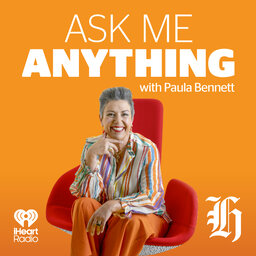The key to career longevity with Eric Idle
This week, Paula's guest is multi-talented entertainer, Eric Idle. They discuss his 60-year career, spanning Monty Python, musicals and live shows, his cancer diagnosis, departed friends, and life in America. And Eric shares his advice for sticking around and how he's kept going in his career over the decades.
Eric brings his new stage show, Always Look on the Bright Side of Life, Live, to New Zealand next month.
 Ask Me Anything with Paula Bennett
Ask Me Anything with Paula Bennett


